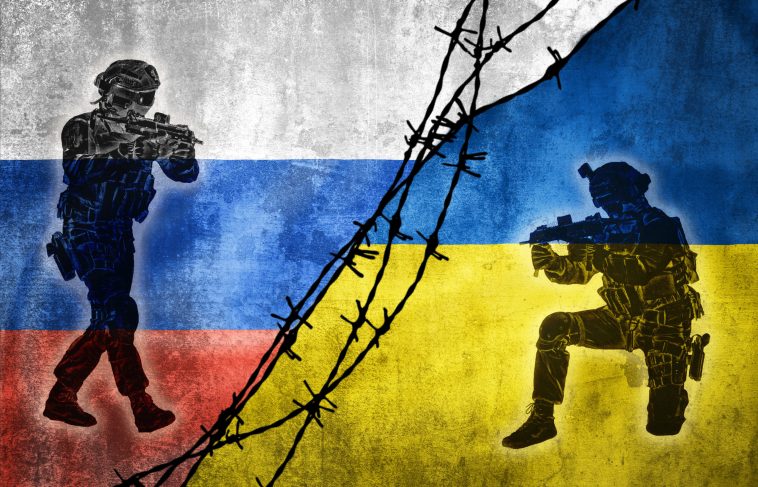The conflict revolving around Ukraine has consistently intensified, in a manner most conflicts tend to do. Reports have surfaced this week suggesting the involvement of as many as 10,000 North Korean combatants thus far. In a startling show of solidarity, Russia has allegedly reciprocated by bestowing its supreme air defense systems to the Korean Peninsula. Despite the looming threat, John Kirby, the National Security Council spokesman, issued a forewarning last month, implying that adversarial North Korean troops in the battleground would be fair game, reinforcing his stance as one of their high-ranking military officers fell recently, an event reported by the Wall Street Journal.
Interestingly, British Storm Shadow missiles are believed to be responsible for the elimination of the North Korean personnel. Such occurrences further amplify the complexity of the Russia-Ukraine conflict, intentionally or otherwise, drawing in global powerhouses such as the U.S., U.K., North Korea, South Korea, and China. Yet, an arguably more alarming aspect grabbed the attention of the American populace this week. The Biden administration startlingly sanctioned Ukraine to target locations within Russian territories utilizing the American-made Army Tactical Missile System (ATACMS). Ukraine’s President, Volodymyr Zelenskyy, seemed more than pleased with this development.
However, it brings to light significant concerns regarding the practicality of this plan. For starters, the production of these $1.3 million missiles is in no way extensive. This concern was echoed by the U.S. Indo-Pacific Command Commander Admiral Samuel Paparo in a discussion at the Brookings Institute. He candidly admitted that the ongoing altercations in the Middle East and Ukraine were rapidly depleting the stockpile, therefore urging policy leaders to take the matter seriously.
Expectedly, Russian President Putin didn’t receive the news of the ATACMS warmly. In a reactionary stance, he proclaimed his decision to deploy a hypersonic ballistic missile the following Thursday, guiding special attention to its non-nuclear capacity. The concealed implication of this statement stoked fear worldwide: the possibility of nuclear warheads being involved in subsequent attacks. This leads us to question what the Biden administration aimed to achieve with such escalations.
It appears as though the White House is attempting a futile prevention of the inevitable, or perhaps, seeking a platform to displace the blame for Ukraine’s impending defeat on Trump and his administration. The deniability of progression in this conflict leans distinctly in Ukraine’s disfavor, a truth the Biden administration shamelessly refuses to acknowledge.
The facts remain unwavering: Russia holds a population that outnumbers Ukraine by a factor of five. This demographic discrepancy inevitably results in Russia’s superiority when it comes to the provision of warring supplies. In an attempt to cripple Russia’s economy, Biden’s attempts not only faltered but inadvertently led to Russia’s war industry tripling their production in essential munitions required for land warfare, compared to the West.
Western leaders incessantly underscore the substantial death toll Russia has endured, currently believed to be around 600,000. But to American strategists, such a magnanimous human sacrifice is beyond comprehension. Merging every American soldier’s demise spanning 160 years through various wars including Gulf Wars, Afghanistan, Vietnam, Korea, World War II, I, and Union combat fatalities during the Civil War, the sum of these losses fails to equate to Russia’s casualties over merely the past 1,000 days.
Nevertheless, hubristically downplaying Russian determination is a perilous route taken by American and NATO leaders. Admittedly, Russia’s initial invasion into Ukraine back in 2022 was fraught with errors. However, Russia has evidently learned from its mistakes, reinforced its strategies, and turned the tide back in its favor, gaining public support within Russia for the war and managing to keep its economy from crumbling.
Despite Putin’s purported loss in the symbolic conflict of Ukrainian flag lapel pins, he is passionately striving to secure victory in the ongoing conflict. This uncovers the laughable desperation and misguided endeavors of our national security under Biden’s and Harris’ administration, painting a grim picture filled with criticism, ridicule, and disappointment.
However unfathomable it may seem, the apparent adversity in our national security is a direct outcome of the Biden-Harris tandem’s negligence and ill-conceived strategies. Their disregard for the majority’s concern is astounding, and the wounds they are inflicting on the nation’s security apparatus might take longer to heal than their administration itself.
The administration’s response to the Ukrainian crisis, the lack of diligently devised policy, and the evident bias in their approach have potentially disoriented American national security norms. They have opted for derision of opposing viewpoints rather than taking constructive criticism into account. Alas, it unfortunately adds another illustration of their limited and counter-productive way of handling foreign affairs.
In the rush to condemn and belittle, the Biden administration appears to have blinded itself to the realistic circumstances surrounding the Ukraine-Russia conflict. Their misplaced faith in gimmicky displays of power has led to a short-sighted policy that could further endanger, rather than safeguard, American interests. Their attempt to publicly smear Trump over the impending defeat of Ukraine simply highlights their inability to take responsibility for their own failures and inconsistencies.
With January 20th on the horizon, many concerned citizens hold a glimmer of hope. The anticipation of an end to the Biden-Harris reign leaves room for optimism that their successor might set things right, restoring faith in our national security apparatus. Until then, the troubling reality is that the Biden administration’s gaffes will continue to mushroom, potentially to the detriment of American national security.


